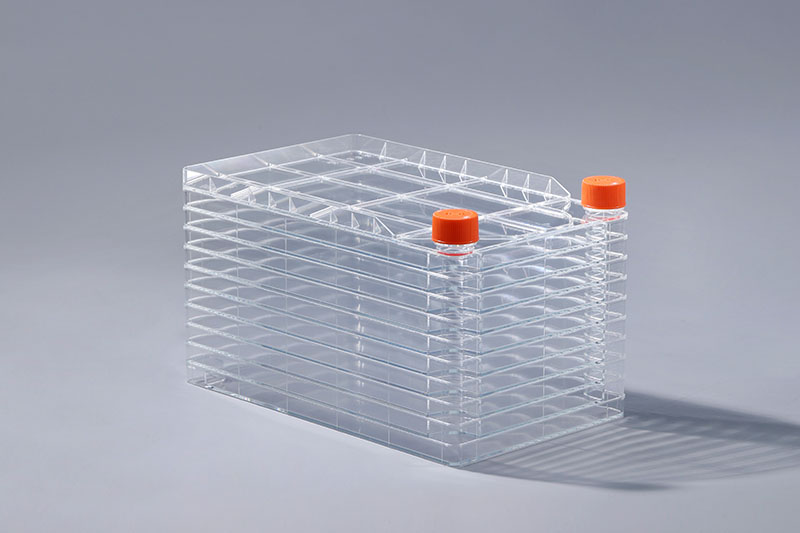Four conditions for culturing cells in cell factories
The cell factory is a multi-layer structure of cell culture consumables. Common specifications include 1 layer, 2 layers, 5 layers, 10 layers, 40 layers, etc. The higher the number of layers, the larger the culture area. This consumable is mainly used for the culture of adherent cells, where the following conditions are necessary for cell growth:
1. Sterile environment
Nontoxicity and sterility are important conditions for culturing cells in cell factories. In vivo, the detoxification system and immune system can resist the invasion of microorganisms or other harmful substances, but in the process of in vitro culture, cells lack the protection of the body's immune system and lose the ability to defend against microorganisms and detoxify harmful substances. To ensure that cells can grow and reproduce in an in vitro environment, it is necessary to ensure a sterile work area, good personal hygiene, sterile reagents and media, and aseptic handling.
2. The right temperature
Generally, the suitable temperature for mammalian and avian cells to be cultured in vitro is 37-38°C. Unsuitable ambient temperature will affect the growth of cells. The tolerance of cells to low temperature is stronger than that of high temperature. At low temperature, the metabolic activity and mitotic capacity of cells are reduced. If the temperature is not lower than 0 °C, although cell metabolism is affected, there is no damage; at 25 to 35 °C, cells grow at a slow rate; but if placed at 40 °C for several hours, it is not only unfavorable for cell survival and growth. , and even lead to its death.
3. Appropriate osmotic pressure
Hypertonic or hypotonic solutions can cause cells to fold, swell, and burst. Therefore, osmotic pressure is one of the important conditions for culturing cells in vitro. Most cells cultured in vitro have a certain tolerance to osmotic pressure. In practical applications, an osmotic pressure of 260-320 mmol/L can be applied to most cells.
4. Gas environment and pH
The in vitro culture of cells requires an ideal gas environment. Oxygen and carbon dioxide are necessary conditions for cell survival. Oxygen participates in the tricarboxylic acid cycle of cells, providing energy for cell survival, metabolism and synthesis; carbon dioxide is not only a metabolite of cells, an essential component for cell growth, but also related to maintaining the pH of the culture medium. The suitable pH range for most cells is often 7.2 to 7.4. In the open culture, 5% carbon dioxide gas ratio is appropriate.
The above are the four major conditions for culturing cells in cell factories. These conditions are environmental. In addition, cell growth also needs to add serum, culture medium and other nutrients required for cell growth, which is also a key factor to ensure normal cell growth.

评论
发表评论